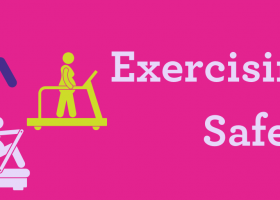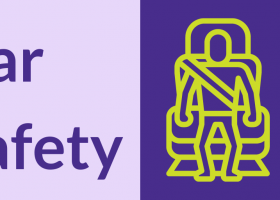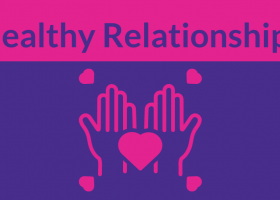Infant Care

You have a lot of great experience to share with the young women in your life. You know what works when it comes to raising kids or getting your life in order. You have great instincts and wisdom to share. The young women in your life are lucky to have you on their side.
When it comes to child care, the professional recommendations may change with time. There are certain practices that can put a baby’s life in danger. Some of these practices may be different from how you took care of your children. Even though what you did in the past worked great for you, we know that you want the best for your loved ones. By learning about these new practices and encouraging the young moms you know to follow them, you can show how much you love and want to protect the women and children in your life.
Bringing Baby Home
You want your baby to be as safe as possible no matter what. The hospital requires you to have a car seat before you and your baby can go home after birth.
Holding your baby in your arms while you are in the car is very dangerous and never safe. In the event of a crash, accident, or sudden stop, your baby could fly out of your arms.
A car seat is the best way to keep your baby safe during travel. It’s important to double check a few things about your baby’s car seat to make sure it is good enough to hold your little one.
Check out our section on finding the right car seat for your child.
Tips when looking for a safe car seat:
- Fits in the back seat. Find one that can fit in the back seat of a car. Never put the car seat in the front seat of a car. This is where many accidents happen.
- Properly installed. Make sure that it’s been installed correctly. Incorrect installation is the most common problem with car seats. There are special, free programs to assist you. Many hospitals, police, or fire stations have someone who can help you.
- Not expired. Look on the car seat for a manufacturer’s suggested “expiration date”. Do not use a car seat if it does not have the manufacture date or model number. This is so you can check if it has been recalled.
- Good condition. Borrowing or renting a car seat? Find out if it is less than 6 years old or has never been in a crash. It may look fine on the outside, but you may never know if it’s missing any parts.
When in doubt, don’t use it.
Need one-on-one training or more tips for baby safety? There are special programs available to help make sure it is in your car correctly and that you have the right kind of seat for your baby.
Visit the Children’s Hospital of Michigan. Their Detroit hospital offers The Safety Center and Kohl’s Injury Prevention Program (KIPP). These programs help you with providing safety tips for your child in case of injuries, fires, and in a vehicle.
Caring For Your Baby
With your baby on its way, you want to be prepared for his or her arrival. Here are a few tips to begin to get yourself ready.
Holding your baby:
Never shake your baby in fun or anger. This could seriously damage the weak neck and brain. Rough bouncing or swinging could injure your baby or lead to an accidental death.
Instead, hold your baby like this:
- Keep your hand or arm under the head. Your newborn baby’s neck is too weak to hold up her heavy head.
- You can hold your baby up to your shoulder or cradle your baby in one arm.
A crying baby:
Crying is how your baby tells you something. She may be saying she is hungry, tired, wet, lonely, uncomfortable, or sick. Soon you will be able to tell the different messages of your baby’s cry.
To comfort a crying or fussy baby:
- Change his diaper. Change the diaper if it is wet or dirty.
- Use a pacifier. Let your baby suck on a clean finger or pacifier.
- Swaddle your baby. Wrap your baby snugly in a blanket (swaddling).
- Hold him. Hold your baby and rock him or her to sleep.
- Let her cry. If your baby has been awake for a while, she may be very tired. Your baby may need to cry for a few minutes in the crib before falling asleep.
- Go for a walk. Put your baby in a stroller, baby carrier, or front pack and take a walk with your baby in the house or outside.
- Check for signs of sickness. If your baby is acting very different from usual and you cannot comfort him, check for a fever or other signs of being sick.
Changing Your Baby’s Diapers:
Your baby should have at least 6 wet diapers in a 24-hour period.Change your baby’s diaper after every poop and when you notice the diaper is wet. This will help prevent diaper rash.
- Wash the area with a soft, wet cloth and dry it before putting on another diaper.
- Let your baby’s bottom be bare for a while every day. Lay your baby on her stomach on an open diaper while playing. The air helps prevents diaper rash.
- If your baby gets diaper rash, be sure to change diapers more often. Spread baby ointment on the rash when you change the diapers.
Infant Safe Sleep
You want the baby to feel comfortable, safe and loved. Even though you may have put your own children to sleep on their sides or stomachs, doctors have found that the safest way for a baby to sleep is on his back. This is the best way to protect your baby from crib death, also called SIDS (sudden infant death syndrome).
Let’s talk about some of your worries:
The baby won’t be comfortable on his back and without a blanket.
- If you are worried that the baby won’t feel cozy and comfortable, dress him in warm pajamas
- Swaddle the baby before laying him on his back in the crib. This will make him feel more snug and secure in a crib.
The baby can spit up and choke if she’s on her back.
- The baby won’t choke if she’s on her back. Babies that sleep on their back are able to turn their heads in their sleep if they do spit up in order to breathe
- Many years of research has found that babies that sleep on their stomach spit up the same amount as babies that sleep on their back.
The baby will end up with a flat head if he sleeps on his back.
- If you are worried about a flat head, be sure to give the baby lots of time on his stomach while he is awake. Or put him in other positions like sitting up while he is awake.
- You can turn the baby’s head slightly when he is on his back and switch sides each time.
Once the baby is able to roll over on her own at around 4-7 months, she may choose not to sleep on her back. At this point, it’s fine to let the baby choose the sleep position that she likes. Until then though, protect the little one in your life by putting her on her back to sleep.
Introducing Solid Foods
Most babies are ready to try solid foods at 6 months, but not before. If you try to give a baby solid foods too early, he may not be able or ready to digest it.
Here are some myths about solid foods.
False: Giving the baby cereal will help him sleep through the night
Truth: Giving a baby cereal or another solid food will not make a difference in helping the baby sleep. They may sleep worse if the foods give them a stomach ache. It also gives the baby more calories and less nutrients which may lead to weight problems in the future. Stick with a bottle filled just with milk.
False: Bigger babies should start solid foods earlier
Truth: Babies come in all different shapes and sizes. Their size or weight does not always have to do with how much they eat. A baby that is 4 months may not be ready for solid foods even if they are the same size as a 6 month old baby.
False: You should begin solids by adding rice cereal to the baby’s bottle
Truth: Putting the solid in a bottle can make the baby more likely to choke. Adding rice cereal makes the milk thicker. Babies don’t know if they should swallow or spit it out and can lead to choking.
False: You should first give your baby greens (vegetables) before fruits so that they won’t only want sweet foods.
Truth: It doesn’t really make a difference what order you give your baby fruits and vegetables. Babies are born liking sweet tastes and so the order won’t change this.
To brush up on more information on nutrition, preconception health, and pregnancy check out these articles:




